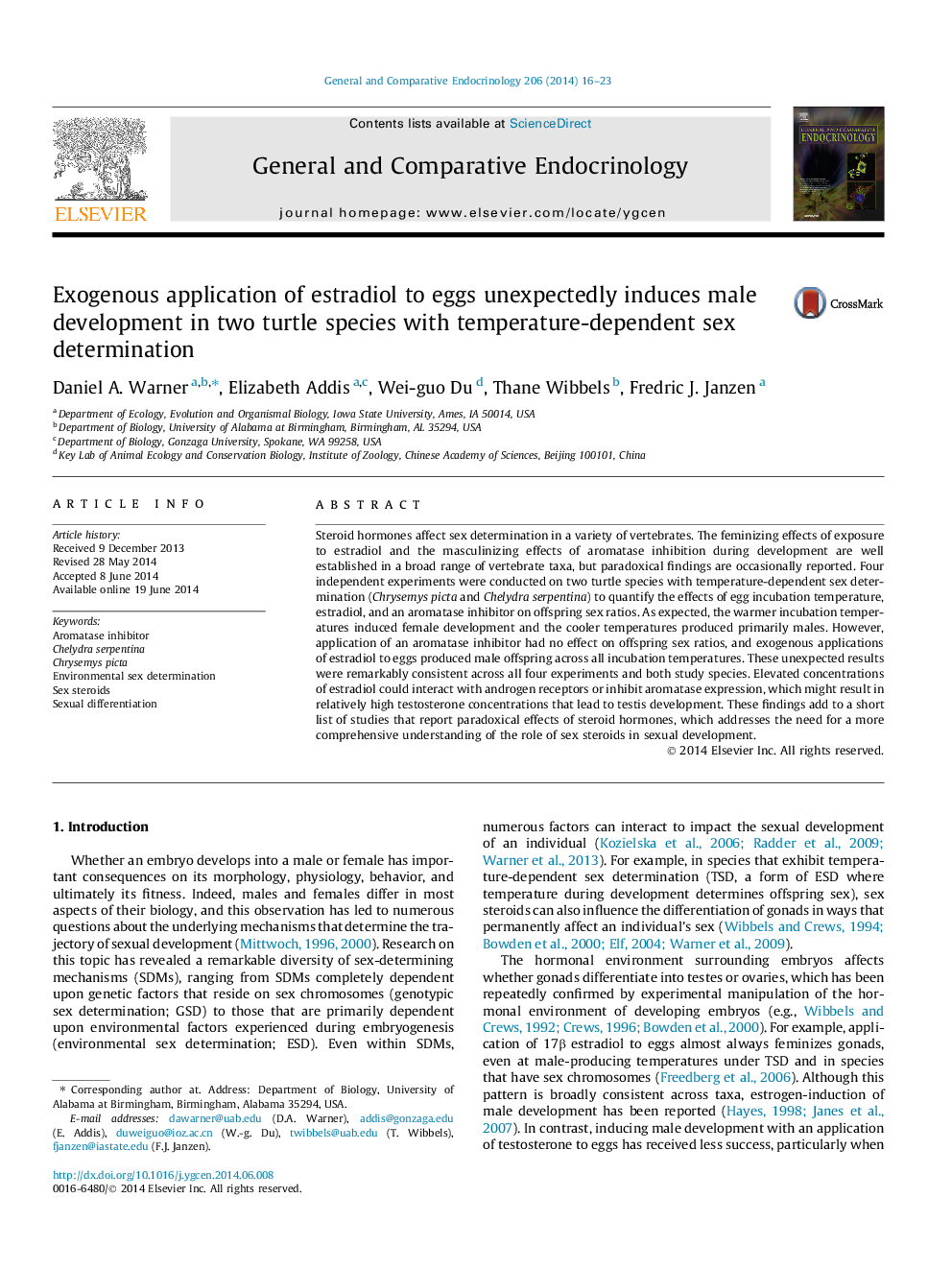| Article ID | Journal | Published Year | Pages | File Type |
|---|---|---|---|---|
| 2800092 | General and Comparative Endocrinology | 2014 | 8 Pages |
•We evaluate the effects of temperature, estradiol, and aromatase inhibition on sex determination.•Aromatase inhibition had no effect on gonadal sex in two turtles with environmental sex determination.•Exogenous application of estradiol to eggs induced male gonad development.•These unexpected results were reproduced in four independent experiments.
Steroid hormones affect sex determination in a variety of vertebrates. The feminizing effects of exposure to estradiol and the masculinizing effects of aromatase inhibition during development are well established in a broad range of vertebrate taxa, but paradoxical findings are occasionally reported. Four independent experiments were conducted on two turtle species with temperature-dependent sex determination (Chrysemys picta and Chelydra serpentina) to quantify the effects of egg incubation temperature, estradiol, and an aromatase inhibitor on offspring sex ratios. As expected, the warmer incubation temperatures induced female development and the cooler temperatures produced primarily males. However, application of an aromatase inhibitor had no effect on offspring sex ratios, and exogenous applications of estradiol to eggs produced male offspring across all incubation temperatures. These unexpected results were remarkably consistent across all four experiments and both study species. Elevated concentrations of estradiol could interact with androgen receptors or inhibit aromatase expression, which might result in relatively high testosterone concentrations that lead to testis development. These findings add to a short list of studies that report paradoxical effects of steroid hormones, which addresses the need for a more comprehensive understanding of the role of sex steroids in sexual development.
